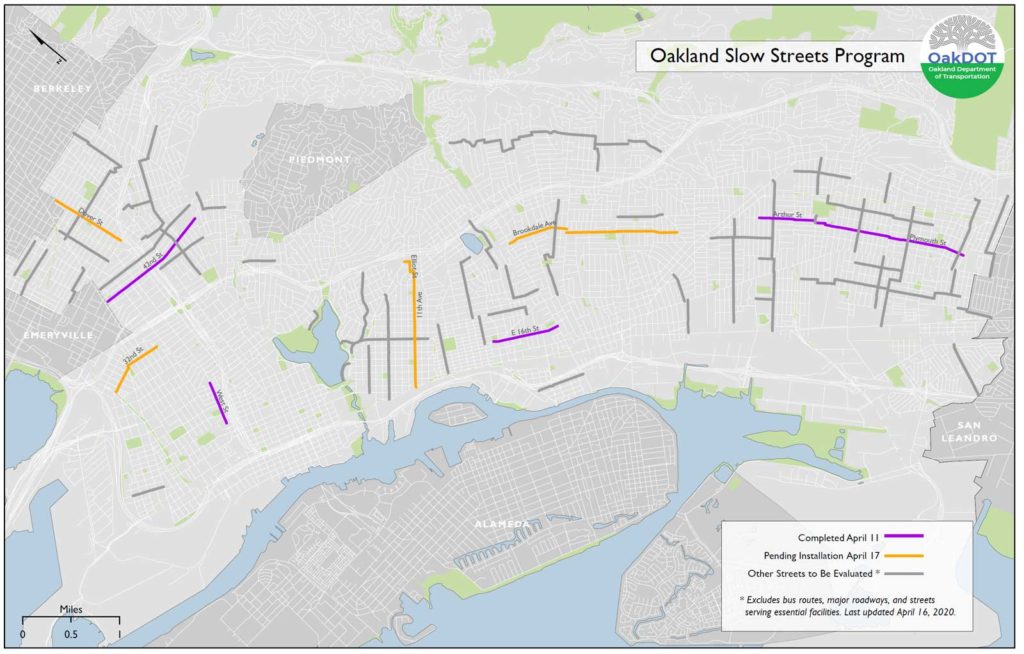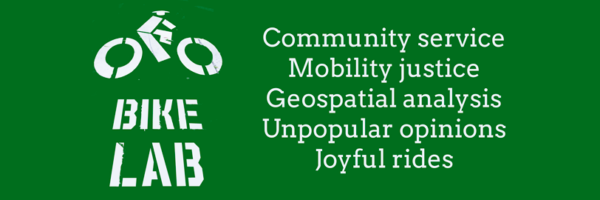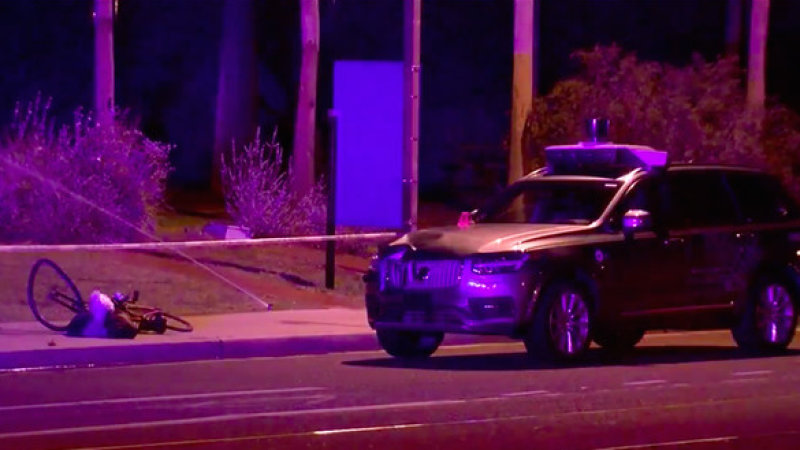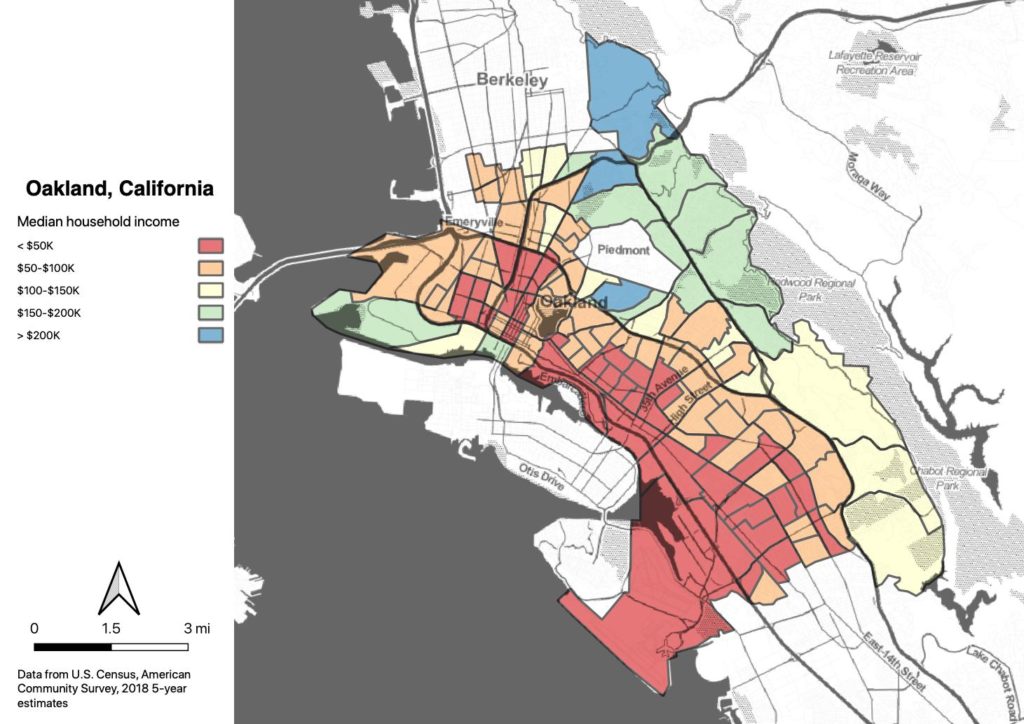I’d been working on my post about disproportionate impact since before COVID-19 hit the Bay Area, but it happened to land in the middle of a broad conversation about the disproportionate impact of the pandemic on poor and working-class BIPOC, and the opening of Oakland’s opportunistic Slow Streets program, which streets advocates across the country are now demanding their cities emulate.
The city got a whole lot of cheerleading about Slow Streets from the kinds of cheerleaders who love that kind of thing, but it also got a lot of thoughtful criticism from mobility justice advocates (predominantly women of color). They, in turn, got a lot of abuse from open streets cheerleaders; Dr. Destiny Thomas, in particular, caught a lot of flack. Some examples from Twitter:
Last night Oakland held its weekly COVID-19 town hall. I should note that it began with a very solid presentation by Dr. Tony Iton on how to respond to racialized health disparities. But the segment led by Warren Logan, Libby Schaaf’s Director of Mobility and Interagency Relations, really made the point about how we’re equity-washing streets programs.
Logan began by (accurately) bringing up the issue of racial disparities in absolute numbers of traffic deaths, and then used that disparity to make the claim that the program is equitable.
It’s really about safety, and it’s about equity…if you are a Black Oaklander, you are twice as likely to be killed in a crash, and three times more likely to be killed or severely injured while walking in the city…
I just want to emphasize…that this Slow Streets initiative is grounded in our core beliefs around safety and equity.
Logan is demonstrating here the phenomenon I was calling out. He’s already decided what he wants to do; he’s been advocating for street closures since before COVID-19, and here he’s throwing up a mostly-irrelevant statistic about disparate impact to justify the program as equitable. None of the streets in the actual program are high-injury streets, none of them are really useful as substitutes for high-injury streets, and none of them are in Chinatown where our highest number of pedestrian injuries occur (particularly for people of color).

The program is not grounded in mobility justice, and it makes no meaningful attempt to address historical inequities or to promote more equitable safety outcomes. I understand that not everyone is as much of a critic as I am, but really, are we as humans and progressives so disinterested, so credulous, so complicit, that we require no more than this kind of weak hand-wave at equity?
OK, that question is rhetorical. Of course we are. That’s part of why these inequities persist.
By the way, Schaaf’s assurance that Oakland would not be issuing citations related to Slow Streets was predictably false, according to an ABC 7 News report:
OPD will do maximum and mandatory enforcement this weekend for sideshow activity and they will be paying particular attention to what happens around the current 4.5 miles of “Slow Streets” designated for pedestrians and cyclists.


